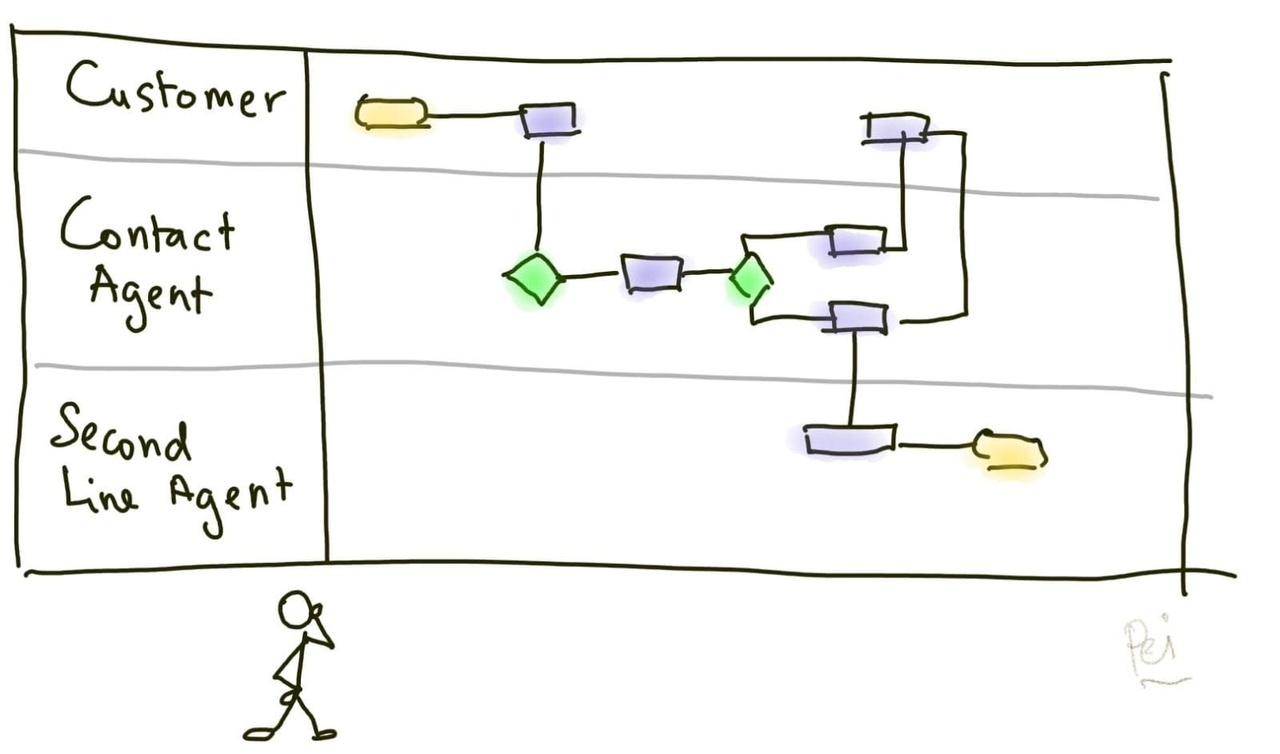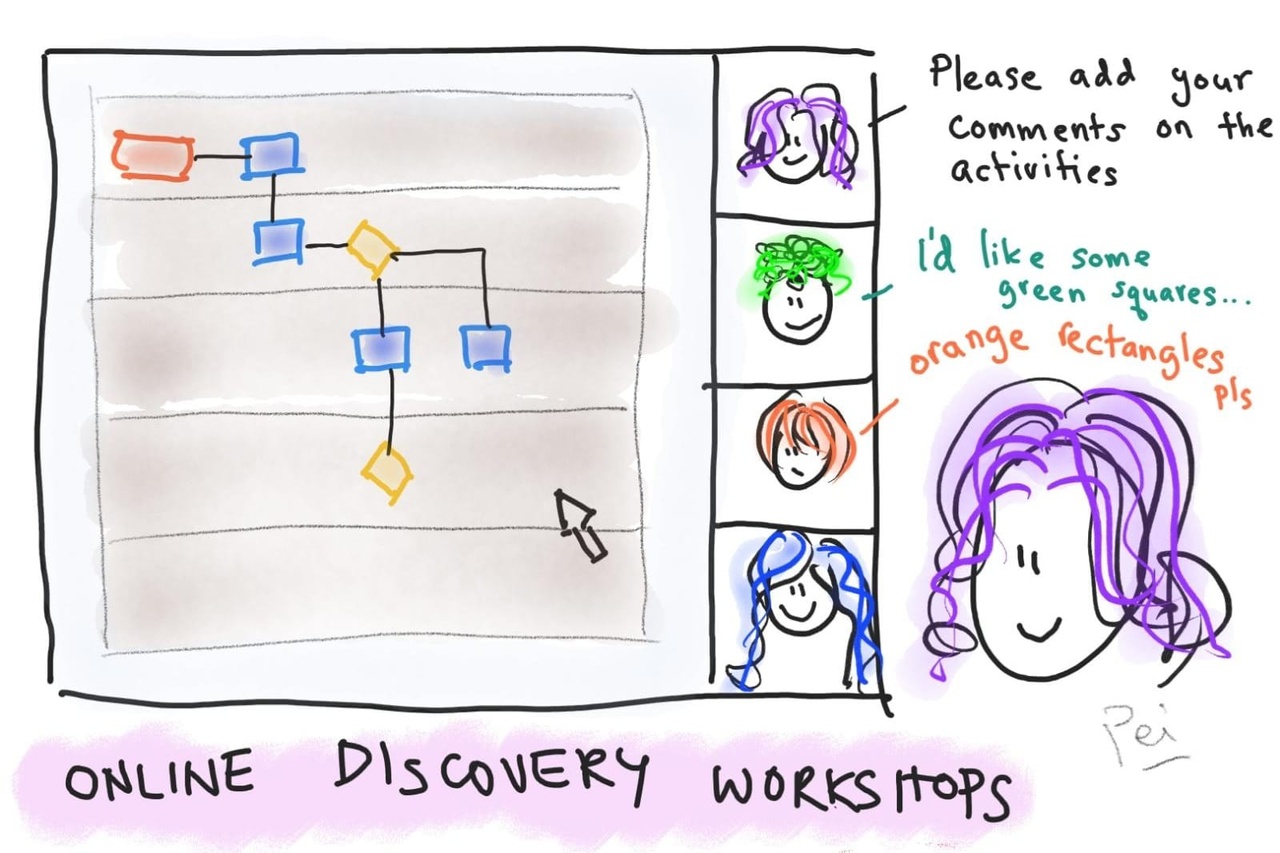Methodology
1. Waterfall
Much reviled old-school method of delivering projects with quality gates sin off processes that are incredibly cumbersome. No wonder it’s being displaced slowly but surely!
2. Scrum / Agile
Very nimble way of doing things, with regular sprints of delivering value to the end user. Sadly many people do not understand this, and make a right pigs ear of the situation. 🐷
3. Hybrid
This is the methodology that most consulting companies use, especially due to the fact that there is generally a defined scope of requirement and budget that we need to adhere to.
There’s not enough space and bandwidth on this newsletter to discuss the merits of the various methodologies so I’m not going to do it here.
You’ll have to sign up to the membership site or my next Masterclass to get into the weeds with me on this 😁
Apps
1. Meeting/call recording/transcribing
The ability to get meetings typed up or accurately documented is a MUST HAVE for any consultant worth their salt.
If you transcribe (like I do), there is an advantage to capturing everything that is being said.
The plus side is that I get to re-play the meeting in my head and capture any personal notes about the dynamics of interpersonal interactions.
The only downside is that you have to spend time after the meeting to review and re-work it so that it can be easily understood and distributed.
If you’re blessed with the ability to listen, absorb, summarize and type notes up accurately, then you’re a boon to any meeting/call.
This reduces any post-processing time required, but context may be slightly altered for any absent members who read the notes after the meeting.
is Be punctual for everything. Once in awhile ‘running late’ or being tardy is acceptable, but don’t make it a habit.
Otter.ai
This new transcribing tool I’ve found. A. Mazing. 🤩
2. Documentation
Google docs
Are useful for collaboration, and sometimes a team can jointly work on a document during training/workshop/discussion to add and enrich a document.
It’s also amazing for asynchronous document collaboration.
Some downsides
- Security. Some companies do not like using it as security isn’t as tight as other document collaboration methods
- Word processing tools aren’t as comprehensive than Microsoft Word, for example.
Microsoft Word
For more robust document formating and functionalities. I use a lot of advanced reference features when producing proper documents.
Confluence
For internal documentation, and collaboration with internal team members.
I ❤ this so much. It allows me to keep track of meetings, document project, profile team members, with important links to other documentation and project timeline and associated collateral.
Atlassian should pay me for being a true fan! 💰💰💰
3. Documenting Requirements
Google Sheets
For initial capture and recording of user stories. These need to be expanded and fleshed out, but is a useful tool for collaboration and approval of user stories with stakeholders. All for loading into…
JIRA
Another Favourite Atlassian tool for managing user stories through its lifecycle from build through to deployment.
Excel (for vlookup and csv file exports)
For the excel gurus, this tool is indispensible in cross referencing and the manipulation of data for dataload and transformation.

4. Capturing Process Flows
In-person – post its, blue-tac, brown paper.
I do hope we go back to in-person workshops, because this was The Best Fun Ever! 🥰
Nothing ike being in a room full of energy and excitement about workflow!
Online – zoom + lucidchart / miro / visio
For online flow charting and process flow – especially the as-is or current state business processes.
I still prefer In-Person workshops though.

5. Personal productivity
One Note & Google Keep
I use both to manage my notes and various ideas and bits, especially writing ideas for my posts and doodles.
Calendly / Doodle
to find out best times for group huddles or meetings, onothing beats these apps. I hate to-ing and fro-ing to find out best times to meet up, especially for remote peer meetings.
Trello
I use this as my personal kanban board for to-do and activities, both for work and personal life. It’s almost as good as JIRA (and it’s free!) so it’s one of my top productivity tool of choice.
2 most Important Consulting Tools
1. Active Listening
This is indispensible, and is the foundation for doing good work. If you do not know how to listen, then by default – you will never be a good ________ (fill in the blank). Period.
Always review, check and validate everything you listen.
Do not assume, because it makes an ASS out of U and ME (I’ll stop repeating it when people start getting it.) 😐
2. Insightful Questioning Skills
This is a close second. Those who can ask great questions will unearth the real treasure, and is a product of critical thinking
